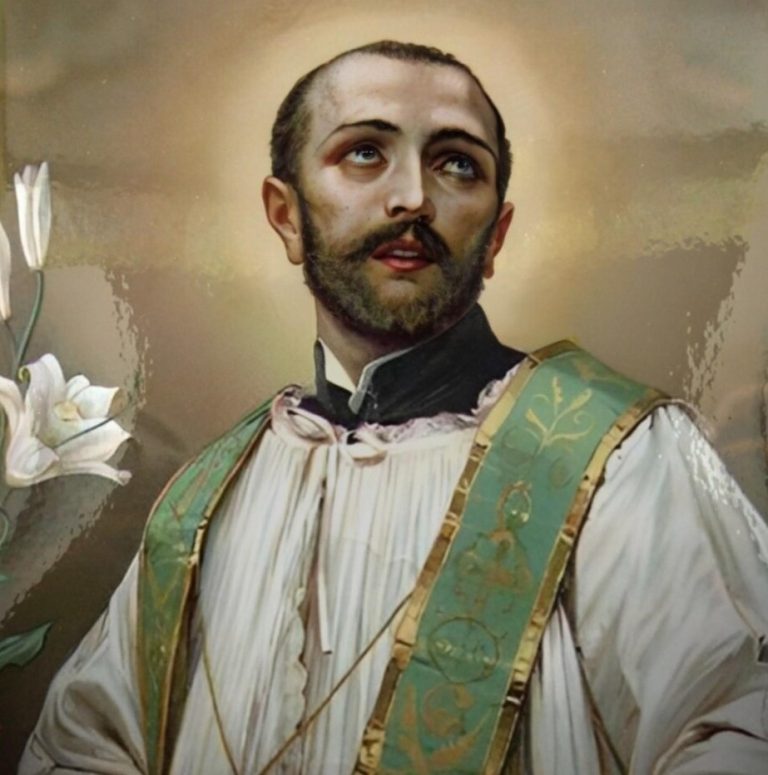The Renaissance saint

Saint Anthony Zaccaria is recognised for his deep faith and passion for reform that shaped the religious landscape during the Renaissance. Born on October 1, 1502, in the northern Italian town of Cremona, he became a Catholic priest and founder of two significant religious orders.
He was an advocate for human dignity and a reformer of spiritual practices in the face of a church deeply entrenched in the political and social upheaval of the time.
Zaccaria was born into a noble family. His father, Bartolomeo Zaccaria, was well-known in Cremona, but his early life was marked by the death of his parents when he was just a child. After their passing, he was raised by his uncle, who ensured that Zaccaria received a well-rounded education, first in Cremona and then in Milan.
Zaccaria, who studied philosophy and medicine at the University of Pavia and seriously considered a career in medicine, is the patron saint of physicians. However, in 1528, at the age of 26, he decided to dedicate his life to God and disregard the potential comforts of a secular career.
This decision marked the beginning of his spiritual journey, leading him to the priesthood. After being ordained in 1528, he sought to pursue a life of greater commitment to the Church, striving to live in a way that was more reflective of the early Church’s ideals of poverty, simplicity, and service of others.
Zaccaria’s devotion to reform stemmed from his intense desire to reinvigorate the spiritual life of his time. Living in a period where the Catholic Church was struggling with corruption and complacency, especially in the wake of the Protestant Reformation, Zaccaria believed the Church needed a renewal of both spirit and practice.
He saw that many clergy had become too focused on material wealth and worldly power, neglecting the central role of Christ and the pastoral care of the faithful. His goal was to reform the Church from within, encouraging a return to the fundamentals of Christian doctrine and personal holiness.
In 1530, inspired by his vision for spiritual renewal, Zaccaria founded the Congregation of Clerics Regular of Saint Paul, commonly known as the Barnabites. This order’s aim was to bring together priests dedicated to preaching, teaching, and caring for the poor. The Barnabites followed a strict rule, with an emphasis on the ideals of poverty, chastity, and obedience. They sought to restore the integrity of the priesthood by encouraging its members to live in community and focus on the spiritual needs of the people rather than worldly concerns.
This order would later play a pivotal role in the Counter-Reformation, helping to revitalise Catholicism in Italy and beyond.
Zaccaria’s vision was not confined solely to the clergy as he was deeply concerned with the laity and worked tirelessly to help ordinary people rediscover their faith. His influence extended to various regions, including Milan, where he gathered a group of lay followers called the Angelic Society. These men and women committed themselves to acts of charity, penance, and spiritual growth, always focused on their personal relationship with Christ.
Central to Zaccaria’s vision for reform was his deep reverence for the Eucharist and the study of Sacred Scripture. He believed these two elements were essential for true spiritual growth. At a time when many people were more focused on external rituals and the power of the Church hierarchy, Zaccaria emphasised the personal connection between the individual and God through prayer, Scripture, and the Eucharist. His promotion of frequent reception of the Eucharist was considered revolutionary at the time, as many Catholics only received it on rare occasions. This focus on the Eucharist helped to renew the sense of reverence for the sacrament.
Zaccaria was also a strong advocate for bible studies. He promoted the idea that Scripture was a critical resource for understanding God’s will, encouraging laypeople as well as clergy to engage with it. His efforts to provide access to the Scriptures and interpret them in ways that would make them more accessible to the faithful contributed significantly to the religious reforms of the time.
Zaccaria’s efforts toward renewal were not without obstacles. His intense reform efforts often brought him into conflict with the established powers within the Church. However, his work was ultimately recognised, and his influence spread beyond Italy. His establishment of the Barnabites and their educational and spiritual missions left a deep impression on the Catholic Church, particularly during the time of the Counter-Reformation.
He died on July 5, 1539, at the age of 36, not long after his ordination. In 1897, Saint Anthony Zaccaria was beatified by Pope Leo XIII, and he was canonised by Pope Pius XI in 1930.
Zaccaria’s life demonstrates the power of conviction in the face of adversity, the importance of personal integrity at a time of corruption, and the necessity of both reform and renewal within the Church. His unwavering devotion to Christ, his innovative approaches to spiritual growth, and his love for the poor and marginalised make him a model of holiness for Christians today.
His feast day is celebrated on July 5 on the anniversary of his death.
Image: One version of the Barnabite logo. PA refers to Paul the Apostle and the three hills symbolise the vows of poverty, chastity and obedience.
We encourage you to share and use this material on your own website. However, when using materials from Majellan Media’s website, please include the following in your citation: Sourced from www.majellan.media

